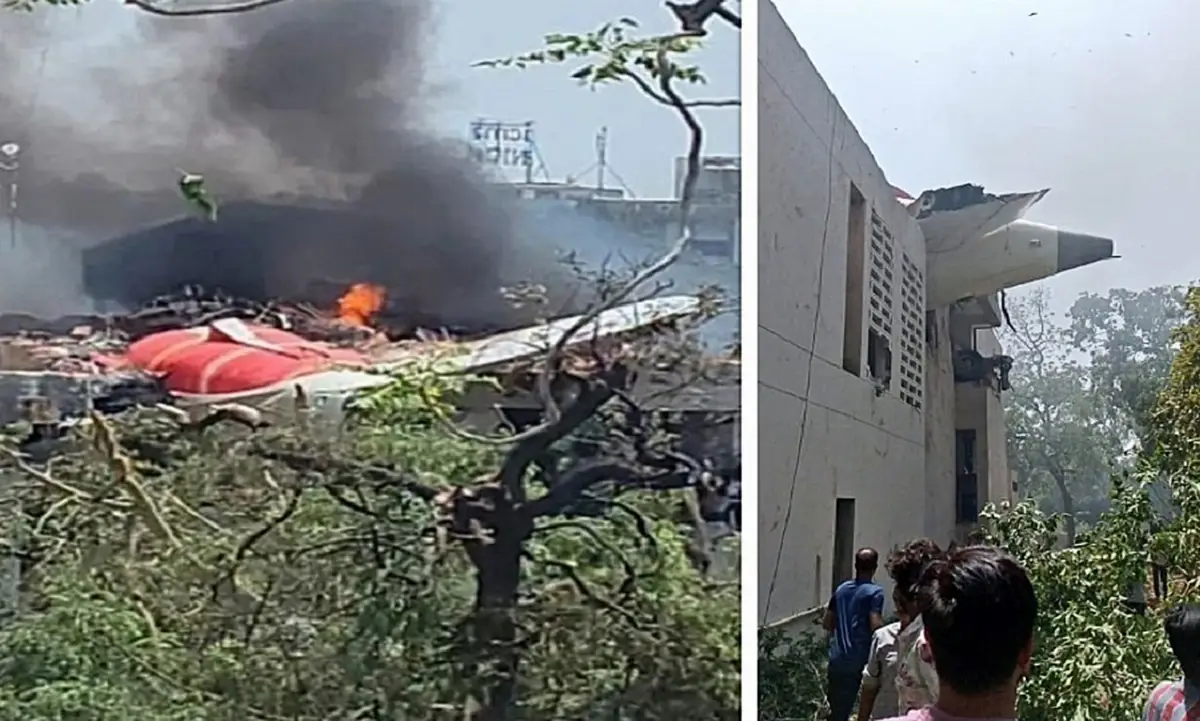
Aircraft disasters. Clash over investigation into Air India flight 171: pilots demand a judicial inquiry
FIP denounces "manifest bias" in the investigation and requests the examination of the B-787 systems

The Federation of Indian pilots is asking the national DGCA to inspect all electrical systems of Dreamliners after the anomalous activation of an emergency system on a flight to Birmingham on October 4
The investigation into the Air India flight AI 171 disaster that crashed at Ahmedabad on 12 June 2025 (see AVIONEWS and related links), which caused the death of 260 people, has found itself at the center of a controversy with the Federation of Indian Pilots (FIP), which has asked the Indian civil aviation ministry to suspend the current inquiry conducted by the Aircraft Accident Investigation Bureau (AAIB) and to instead establish an independent judicial investigation.
In a letter dated 22 September 2025, the pilots' union expressed "serious and alarming developments that have compromised the integrity, impartiality and legality of the ongoing investigation". The FIP cited in particular an unsolicited visit by AAIB officials to the residence of the father of one of the two deceased pilots, Captain Sumeet Sabharwal. During this meeting, according to FIP, the investigators allegedly suggested that the pilot may have deliberately moved the fuel control switches to the shut-off position shortly after takeoff, a claim described as "procedurally improper and professionally indefensible".
The AAIB's preliminary report of July had already highlighted that fuel supply to both engines of the Boeing -787/8 had been interrupted a few seconds after takeoff, but the pilots' association complains that the overall handling of the investigation is prematurely focusing on pilot error, compromising the reputation of an experienced professional and violating rules on the confidentiality of Cockpit Voice Recorder (CVR) recordings.
Alarm over the Boeing -787 electrical system
The request for a judicial inquiry was reinforced by a recent episode that again raised concerns about problems with the B-787 Dreamliner. Yesterday, Sunday 5 October 2025, FIP urged the Indian air safety regulator, the Directorate General of Civil Aviation (DGCA), to carry out an inspection and an in-depth investigation of the electrical system of all Boeing -787 aircraft operating in the country.
This request came the day after the episode that occurred on Saturday 4 October 2015 in Birmingham, United Kingdom, where an Air India B-787, en route from Amritsar, recorded the unexpected deployment of the Ram Air Turbine (RAT) during the final approach to the airport. The RAT is an emergency system that automatically deploys in the event of total failure of electrical or hydraulic systems to generate the power necessary for essential flight systems. Although the aircraft landed safely, according to FIP the anomalous activation was caused by a fault detected by the Aircraft Health Monitoring (AHM) in a Bus Power Control Unit (BPCU), which manages the aircraft's electrical system.
The pilots' association emphasised the similarity of the episode with the Ahmedabad incident, where the RAT had likewise deployed shortly after takeoff, following the interruption of fuel supply. Although the AAIB concentrated attention on the fuel switches after the June tragedy, FIP has long insisted on the need for thorough checks of the B-787's electrical systems. "This malfunction is further evidence pointing toward the Air India disaster", the Federation said in its communication to the DGCA, calling for immediate action to ensure air safety.
About the Ahmedabad airplane disaster see also AVIONEWS.
AVIONEWS - World Aeronautical Press Agency